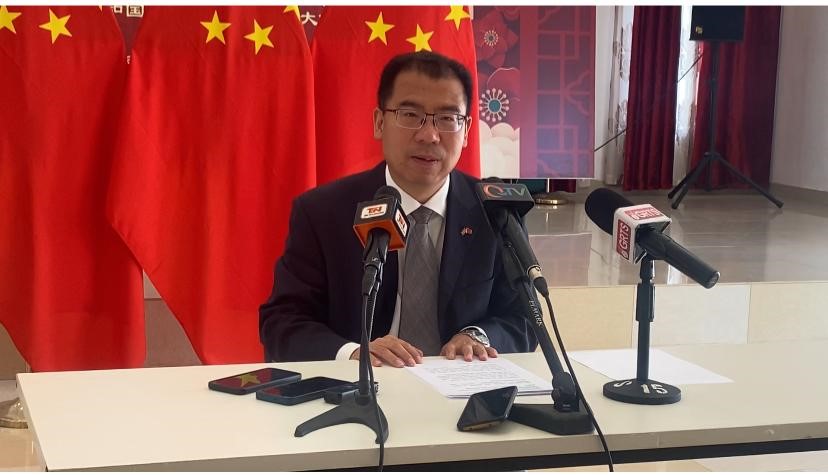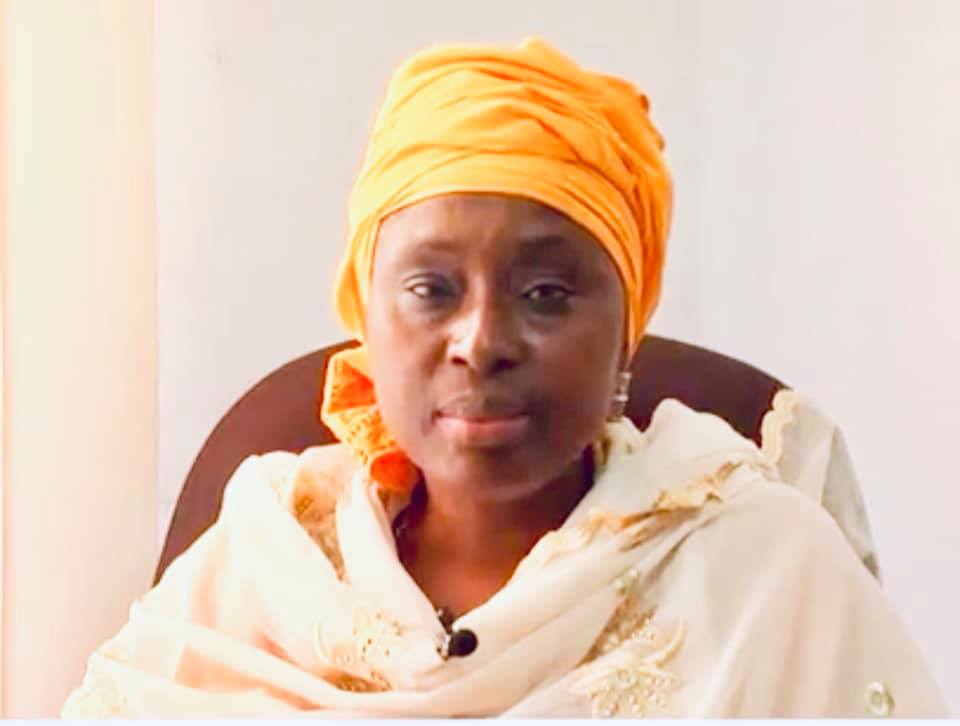By: Fatou Krubally
The Chinese government has announced new retaliatory measures against the United States, raising tariffs on all American imports to 84 percent and adding 18 U.S entities to its export control and unreliable entity lists.
Speaking Thursday at a press briefing held at the Chinese Embassy in The Gambia, Zhao Shangsen, Chargé d’Affaires of the People’s Republic of China, said the latest move is a direct response to the U.S’s continued “unilateral tariff hikes.”
“Let me be clear, China has not started this confrontation,” Zhao said. “We do not want trade or tariff wars. We Chinese are not troublemakers, but we will not flinch when trouble comes our way.”
Zhao accused the U.S of weaponizing tariffs to exert pressure for selfish gain, ignoring established economic principles and undermining the international trade system. He emphasized that intimidation and blackmail are not effective means of engaging with China.
“If the U.S truly wants to talk, it should let people see that they are ready to treat others with equality, respect and mutual benefit,” he said. “China is not blinking.”
The Chargé d’Affaires further criticized what, he called, the U.S’s disregard for balanced multilateral agreements and its pursuit of hegemonic interests, stating that Washington’s actions put global economic stability at risk.
“As the second largest economy and consumer market, China is committed to opening even wider to the world,” Zhao said. “Economic globalization is the only way-forward. Protectionism is a dead-end.”
He described development as an inalienable right of all nations and called for international affairs to be addressed through consultation. “There are no winners in trade or tariff wars,” he warned, expressing confidence that most countries will “stand on the right side of history.”
Zhao concluded the press briefing with a call for global cooperation in resisting unilateralism and promoting a fair and inclusive economic order.
“China stands ready to work with all parties to uphold true multilateralism, defuse risks, and promote universally beneficial globalization,” he said.





